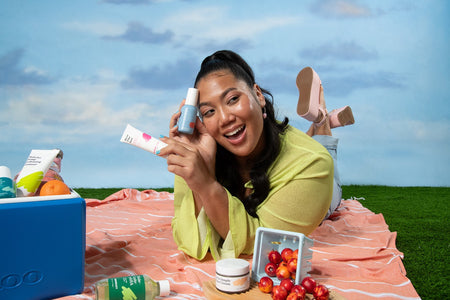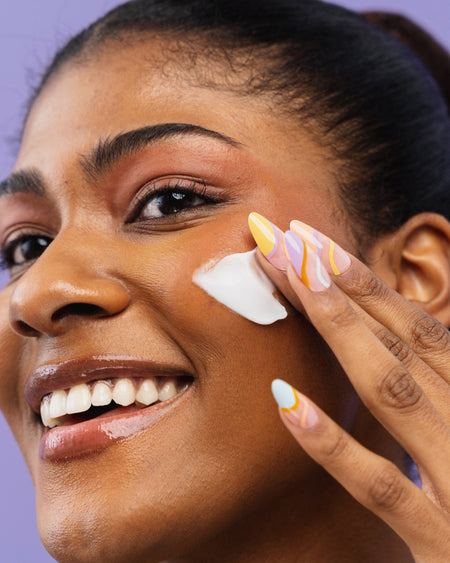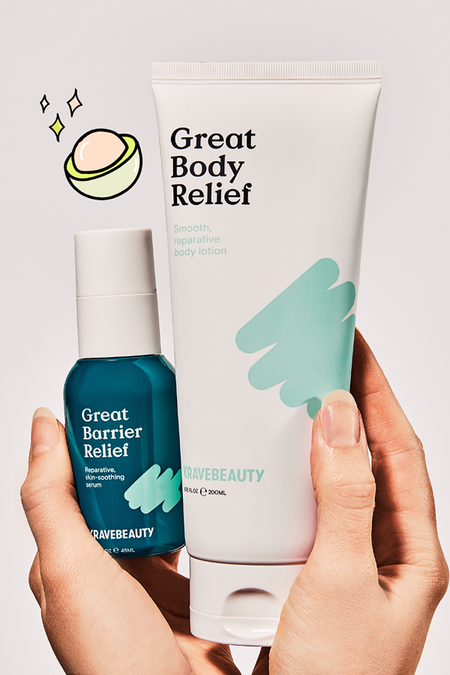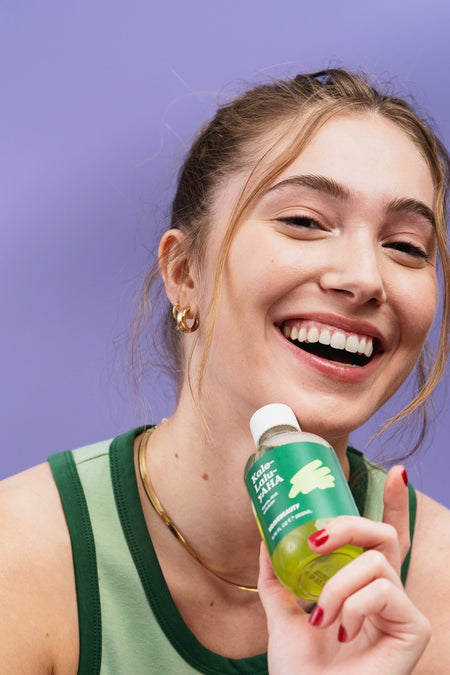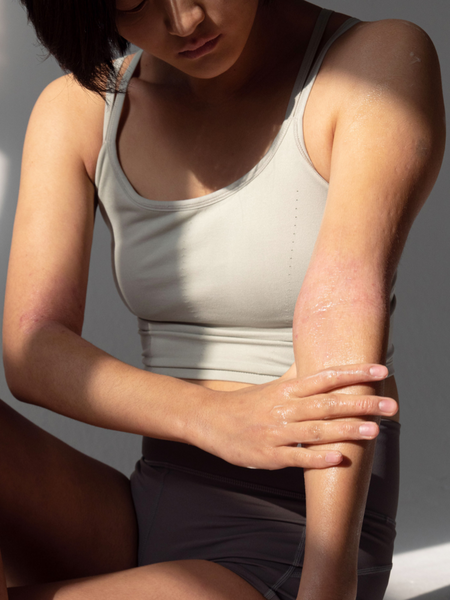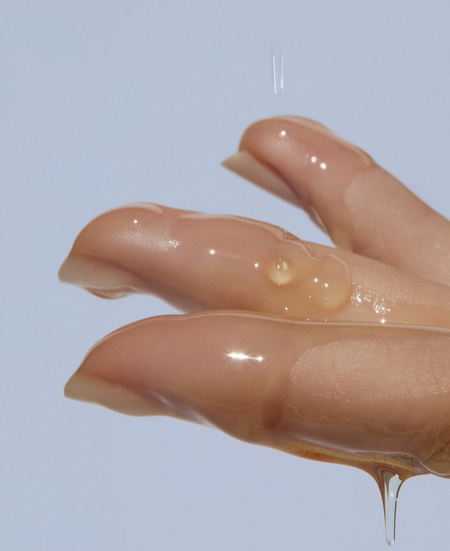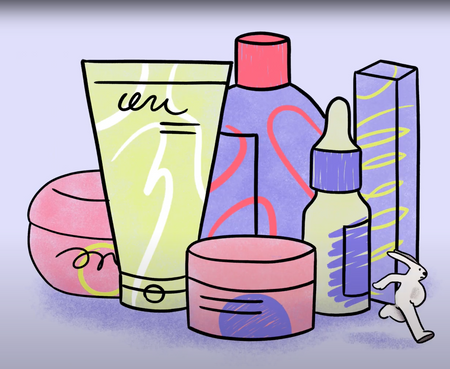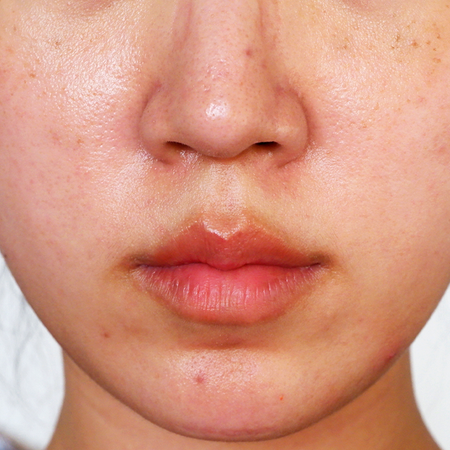How to Choose a Moisturizer

Choosing a moisturizer can be complicated. Despite being one of the most basic steps to your skincare routine, they have become anything but. Filled to the brim in fancy ingredients, sensorial experiences and other bells and whistles, there’s so much to consider beyond even the basic finish, texture, and occlusivity level your unique needs may crave.
It’s a lot. So where do you even start?
Start at...
The core purpose
The core purpose of a moisturizer is to moisturize. And the reason moisturization is important is because moisturizers (1) create a barrier on your skin that keeps moisture (aka the water and oil in your skin) from escaping, (2) keep harmful external stressors from causing dryness or irritation, (3) and treat already dry and/or irritated skin¹. (Source 1: Mayo Clinic)
From there, assess and address any skin concerns that you may have. Do you suffer from dry skin, fungal acne, oily skin? Depending on that, what your skin may need or doesn’t need to achieve an optimal state can be determined.
Things to consider and remember:
-
Whatever your skin condition or concern at the moment is, your goal should be to balance those conditions and bring your skin into a healthy and zen state, where it can regulate and largely take care of itself. Skincare products, like a good moisturizer, can help you get there but remember...they are simply products helping you get there.
-
Your moisturizer (and any other skincare product, really) should (1) do what it’s supposed to, like moisturize, and (2) do no harm to your skin.
If you’re struggling to figure out what’s best for your skin and need a place to start, we recommend starting with a basic af moisturizer that you know is completely safe for your skin and fits your moisture craving levels. Then from there, if (and only if!) your skin needs it, identify any extra cravings your skin may be calling for to add in. If not, stick to some good old-fashioned hydration and say goodbye to over-complicated routines.
Sometimes it’s just about the simple things in life, and moisturizer can be one of them.
-
Ingredients are obviously very important - there’s no arguing that, however, it’s not all black and white when it comes to this. There’s a lot more to a product, then what’s on the back of it’s label.
There are a variety of factors and conditions that go into formulating a product, like the quality of the ingredients, the technology behind the formula, how the ingredients in the formula offset and compliment each other, and how all of that comes together to ultimately impact your skin.
Make sure to do your homework and know the facts, so that you can make the best decision for your skin and your skin’s health.
Bonus point: doing your homework on how a product may work for you, also, sets you up to be a more conscious and intentional consumer, which is a win-win-win (!) for your skin, wallet and the environment 😉.
-
The state of your skin and the concerns you want to address will largely determine what you want to look for in your moisturizer, such as, the water and oil content (how it moisturizes), the viscosity/occlusivity (how much it locks in), and, of course, the ingredients they are formulated to ensure its safety for your skin.
So, to give you a little head start on your research. If your skin is:
Dry
Dry skin means your skin is lacking in oil production. So if you suffer from dry skin, you may benefit from heavier, oil-based moisturizers as they are better at preventing the moisture evaporate from your skin. If you don’t love the feeling of a super occlusive moisturizer or are only dry seasonally, consider adding an oil into your routine.
Dehydrated
Dehydrated skin means your skin is lacking in water content. Dehydrated skin can indicate a compromised skin/moisture barrier, in which, one can experience an easy escape of hydration in your skin (aka trans-epidermal water loss aka TEWL). Look for humectant-rich and skin-barrier repairing ingredients, like glycerin, sodium pca, honey, ceramides, or cholesterol, in your moisturizer and skincare, and be sure to not further weaken your barrier by over-cleansing and over-exfoliating.
Oily/Acne-Prone
If you’ve read any of our Acne Series blog posts, you know that the oil aka the sebum found on your skin serves a purpose. It’s your skin’s way of naturally providing moisture and, commonly, an overproduction of it can indicate that you are stripping your skin too much (like from over-cleansing) and not providing it enough moisture. If this is your concern, you may benefit from a lightweight, gel type moisturizer that contain sebum-regulating ingredients like niacinamide, or oils with higher linoleic acid content like rosehip oil.
Sensitive
If you suffer from sensitive skin, you should first and foremost avoid moisturizers with any added fragrance as this can quickly irritate your skin. Choose a super basic moisturizer with calming ingredients like oat extract (😉), niacinamide or honey that will help soothe your skin and do it no harm.
Fungal Acne-Prone
If you suffer from fungal acne, you should avoid oils and fatty acids in your moisturizer like Lauric, Palmitic, stearic, oleic, linoleic acid or fermented ingredients like galactomyces, and instead look for ingredients with antifungal properties like honey, propolis extract, green tea extract, or salicylic acid. Hot tip: make sure to not over-moisturize your face during hot weather because fungi love humidity, and this can support their growth.
We’re all about giving you the full picture, so that’s why we’re providing you with some info on what to look for, as well as what to avoid. But, again, keep in mind that your skin is smart, and it knows how to take care of itself when it’s in a healthy state. The best thing you can do for your skin is do it no harm. So, before you click out of here and go on a rampage to find the perfect moisturizer based on the above - take a second and pause. Remember that the only thing your moisturizer really needs is to provide moisture. Listen to your skin, do it no harm, and only give it what it’s craving.
Relevant features mentioned in this blog post:
To read more about how weather may affect your skin’s condition, check out our blog post: Change in Weather = Change in Skincare.
For more tips and ingredient recommendations for a compromised skin barrier, check out or blog posts on Skin Barrier 101 and TEWL.
For more tips and ingredient recommendations for oily and acne-prone skin, check out our Acne Series: Skincare Routine for Acne-Prone Skin and Fives Rules to Control Your Oily Skin.
 Matcha Hemp Hydrating Cleanser
Matcha Hemp Hydrating Cleanser Oat So Simple Water Cream
Oat So Simple Water Cream Beet The Sun SPF 40 PA+++
Beet The Sun SPF 40 PA+++ Great Barrier Relief
Great Barrier Relief Kale-Lalu-yAHA
Kale-Lalu-yAHA

